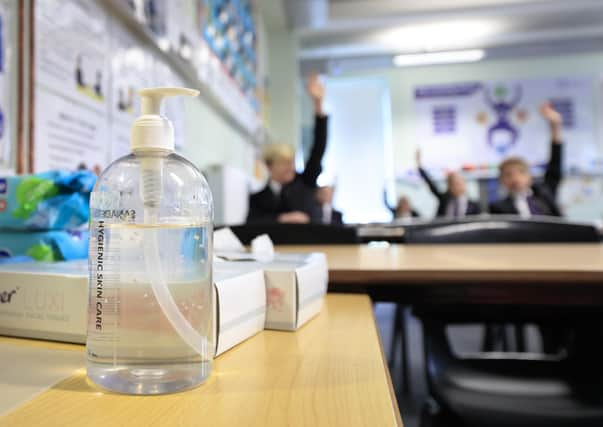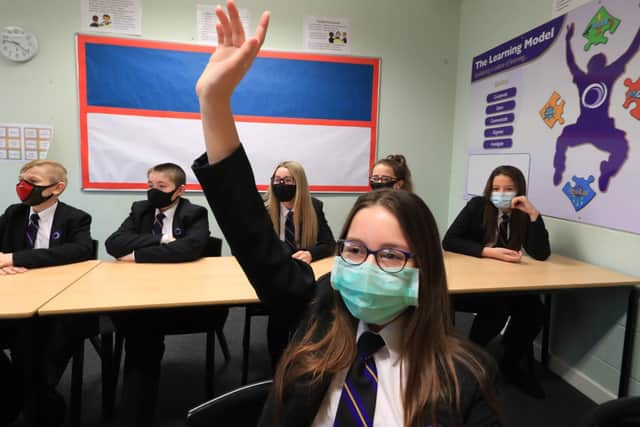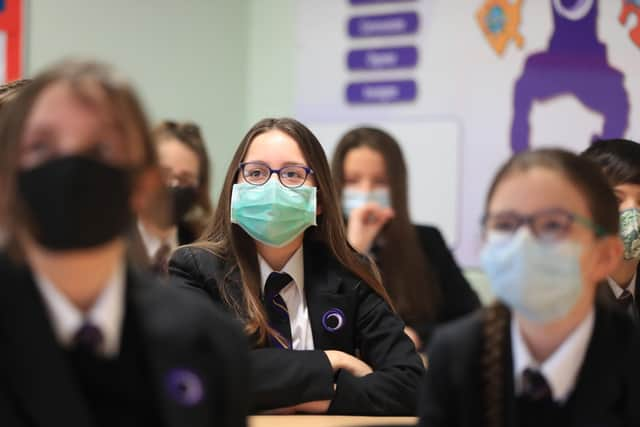Now cut school holidays to help children catch up – Ryan Shorthouse


Well, we now have a genuine crisis with our children’s education. Despite the admirable adaptiveness and commitment of teachers, the online and disrupted teaching schoolchildren have received over the past few academic years has been sub-optimal, to say the least.
We know that young people from poorer backgrounds have been much less likely to engage with remote lessons.
Advertisement
Hide AdAdvertisement
Hide AdSo much that the educational attainment gap between children in receipt of free schools meals and not is forecast by the Education Endowment Foundation to widen significantly, reversing all the progress schools have made on this over the past decade.


For those vulnerable children eligible to still attend school in-person throughout the pandemic, there is data suggesting a majority simply did not.
Just think about it: closing schools for many months – institutions which countries around the world have deemed the most effective and efficient way to educate children, investing billions each year and making it compulsory for most of childhood – obviously will have a massive detrimental impact on learning.
Indeed, we now have evidence which proves, not just forecasts, the scale of the learning loss from Covid-19 closures in the UK.
Advertisement
Hide AdAdvertisement
Hide AdAn average of two to three months learning loss across all pupils, with disadvantaged and younger schoolchildren most badly affected. Schools with a high proportion of disadvantaged pupils are seeing the biggest falls in test scores.


So, the lack of urgency and radicalism in policies so far to address the profound learning loss from school closures is alarmingly complacent.
The relatively modest additional amount of funding granted by the Treasury recently to support further catch-up tutoring was woeful, causing Sir Kevan Collins to resign as the Government’s education recovery commissioner.
Studies show that one-to-one or small-group tutoring is highly effective in boosting children’s attainment.
Advertisement
Hide AdAdvertisement
Hide AdBut the National Tutoring Programme, the main solution thus far, does not have – as the National Audit Office has shown – the participation rates that are needed to mitigate the broad and deep learning loss among different cohorts of schoolchildren.
No intervention can beat children being in classrooms taught by highly-qualified teachers as part of a structured school day.
Sir Kevan Collins proposed extending the school day over future academic years.
There is solid evidence that additional time spent at school, either through an extended day or term, is associated with higher attainment.
Advertisement
Hide AdAdvertisement
Hide AdExtending the school day would generally be welcome. Doing so by half an hour a day is supported by a majority of parents.
But this is not really the way to help schoolchildren catch up from the Covid closures.
It would mean teaching children skills and knowledge from this academic year when they have moved up a year and thus to another part of the curriculum.
As Professor James Heckman argued, skill formation is complimentary: learning begets learning. If children do not master the fundamentals one year, it will just hamper their learning in future years.
Advertisement
Hide AdAdvertisement
Hide AdThe best option is to significantly shorten the school summer holidays now, paying teachers additional to provide compulsory, full-time teaching for an additional three weeks this year.
This will give all schoolchildren the opportunity to acquire and solidify the learning from this year.
Some recent polling by the Centre for Policy Studies and Public First suggests this approach of shorter school holidays could have higher levels of net parental and public support than longer school days.
It is not too late to do this.
Government, schools, and unions can and should negotiate quickly.
Advertisement
Hide AdAdvertisement
Hide AdThis is a crisis, after all: if there is willing, change can come fast.
Failing to act in such a way will lead to profound long-term damage to both individual and national prosperity.
Ryan Shorthouse is chief executive of the Bright Blue policy think tank.
Support The Yorkshire Post and become a subscriber today. Your subscription will help us to continue to bring quality news to the people of Yorkshire. In return, you’ll see fewer ads on site, get free access to our app and receive exclusive members-only offers. Click here to subscribe.
Comment Guidelines
National World encourages reader discussion on our stories. User feedback, insights and back-and-forth exchanges add a rich layer of context to reporting. Please review our Community Guidelines before commenting.